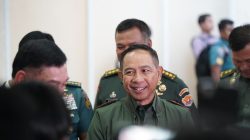U.S. Tariff Threats and Political Motivations
U.S. President Donald Trump has escalated tensions with Brazil by threatening to impose a 50 percent tariff on all imports from the country starting August 1. This move comes as a direct response to Brazil’s handling of former Brazilian leader Jair Bolsonaro, who is currently facing legal challenges. Trump’s actions highlight a shift in his approach to international trade, where personal and political considerations seem to take precedence over economic factors.
New Tariff Rates for Several Nations
In addition to Brazil, Trump has notified seven other countries—Algeria, Brunei, Iraq, Libya, Moldova, Sri Lanka, and the Philippines—of new tariff rates ranging from 20 percent to 30 percent. These measures are part of a broader strategy that Trump has been implementing since Monday, targeting various U.S. trading partners. The Brazil tariff stands out as the most severe among these new levies, reflecting the unique circumstances surrounding the relationship between the two nations.
A Shift in Strategy
The increase in the tariff rate for Brazil marks a significant change from the initial 10 percent tariff that Trump had set. This was part of his reciprocal duties policy introduced in early April, which aimed to address trade imbalances. However, the recent escalation suggests that Trump’s focus is not solely on economic matters but also on political influence.
In a letter addressed to current Brazilian President Luiz Inacio Lula da Silva, Trump expressed his views on the situation involving Bolsonaro. The letter, shared on social media, criticized the trial of Bolsonaro, calling it a “Witch Hunt that should end IMMEDIATELY!” This language indicates a strong personal stance, emphasizing that Trump’s tariff policy is influenced by his relationships and beliefs rather than purely economic reasoning.
Legal Challenges and Political Allegiances
Bolsonaro faces charges related to orchestrating a plot to overturn his 2022 election defeat. This situation has drawn attention not only for its legal implications but also for the potential impact on international relations. Trump’s decision to use a tariff threat to influence a criminal trial in a foreign country is a departure from his usual approach, which typically involves more standard communication methods with other nations.
For instance, Trump has sent form letters to countries such as Japan, Malaysia, and South Korea, which do not carry the same level of personal involvement or direct threats. This contrast underscores the unique nature of his relationship with Brazil and the significance he places on Bolsonaro’s case.
Implications for International Trade
The implications of these tariff threats extend beyond immediate economic impacts. They raise questions about the role of political influence in international trade policies and the potential for such actions to disrupt established trade relationships. As countries navigate these changes, they may need to reassess their strategies and consider how to respond to such targeted pressures.
Moreover, the situation highlights the complex interplay between domestic politics and international diplomacy. Leaders like Trump often leverage their positions to exert influence, sometimes at the expense of broader economic interests. This dynamic can create uncertainty for businesses and consumers alike, as they face the potential consequences of shifting trade policies.
Conclusion
As the situation continues to unfold, it remains to be seen how Brazil and other affected nations will respond to these tariff threats. The emphasis on personal and political motivations in Trump’s approach to trade could set a precedent for future interactions between countries. Ultimately, the balance between economic interests and political considerations will play a crucial role in shaping the landscape of international trade in the coming months.







